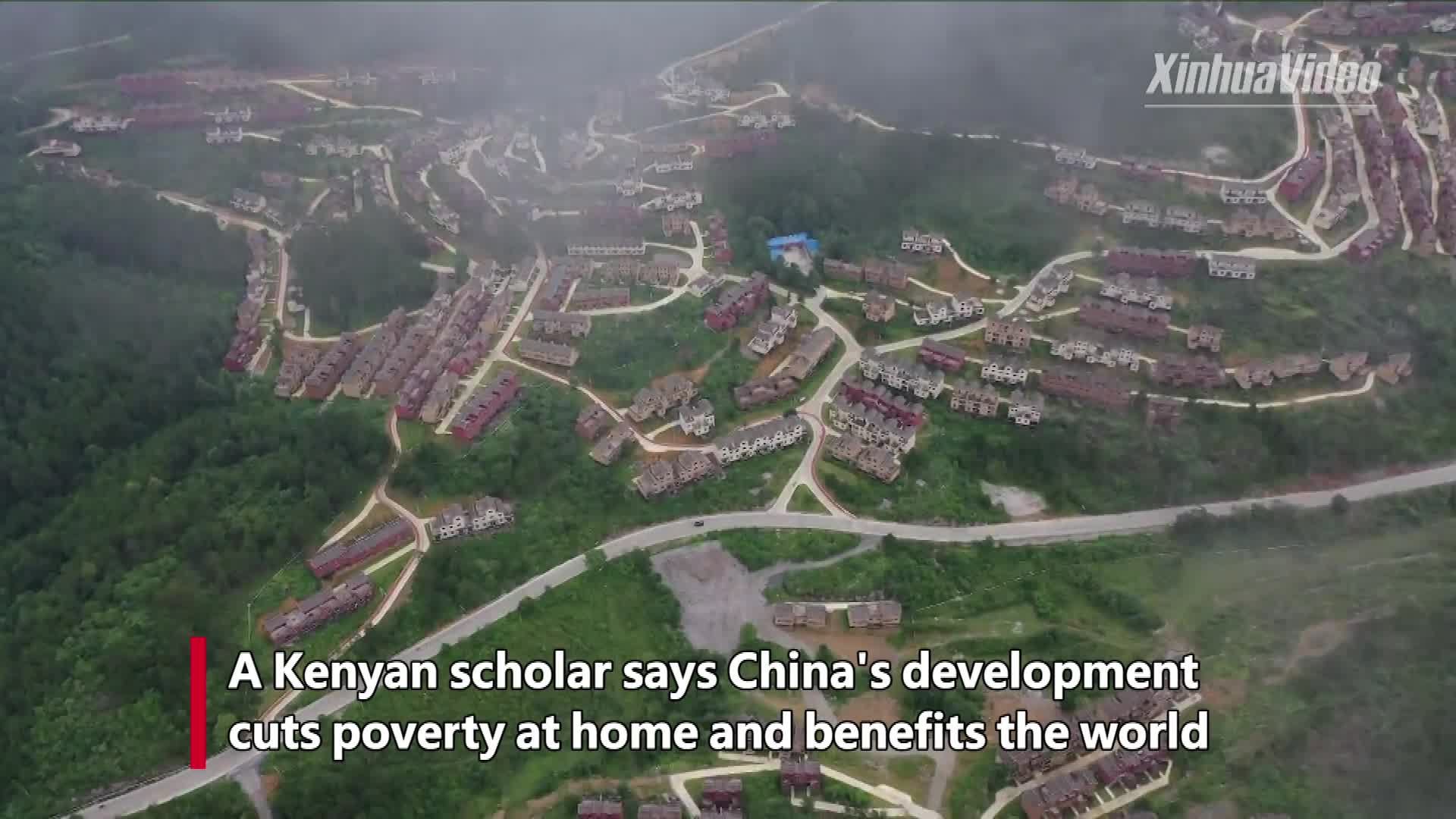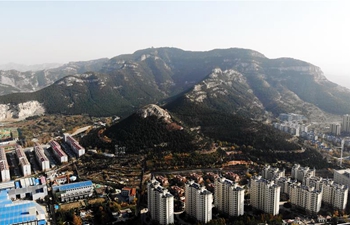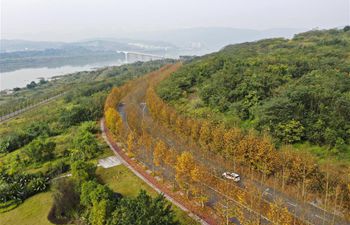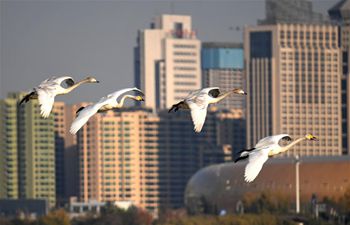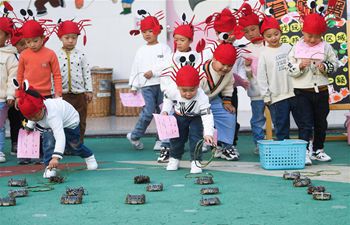TOKYO, Nov. 20 (Xinhua) -- Japanese Prime Minister Shinzo Abe on Wednesday vowed to make an all-out effort to tackle his policy goals such as ending deflation, dealing with the nation's aging population and declining birthrate, as well as revising the Constitution, with his pledge coming against a backdrop of past and more recent controversies.
The Japanese leader made the remarks as he became the longest-serving prime minister in Japanese history on Wednesday, marking 2,887 days in office during his current tenure since returning to power in 2012 and in a brief stint at the helm between 2006-2007.
"I still have nearly two years left in my term as the president of the Liberal Democratic Party (LDP). Under the weight of my responsibility, I will make an all-out effort to tackle policy goals, remembering the time when I first started out feeling nervous as if walking on thin ice," Abe, speaking from his office, told reporters.
Abe, 65, said that there are some key policies on his agenda that he still intends to tackle, with these including declaring an end to deflation, tackling the issue of the country's aging population coupled with a declining birth rate and resolving diplomatic challenges left unaddressed since the end of World War II.
"Beyond that, revising the Constitution is also on the horizon," Abe added.
His legacy-led goal of amending the Constitution for the first time since WWII, however, has not been a smooth one, having failed to garner the requisite number of seats in an upper house election this year amid a lack of public support and disapproval from the opposition camp.
Prior to that, calls against the move became vociferous from the opposition camp and the public as in 2014 he mandated the reinterpretation of Japan's pacifist Constitution to expand the role of the nation's Self-Defense Forces (SDF). The move was widely criticized for Abe using his parliamentary majority to steamroll the unpopular security legislation on the issue through both houses of Japan's bicameral parliament and into law.
Abe has, thus far, along with such controversies, also weathered the storm of a number of money and favoritism scandals that have plagued him and his Cabinet since his first tenure.
And, of late, two of his ministers stepping down in quick succession, owing to potential breaches of Japan's election law, and allegations his office partly covered expenses for his supporters to attend a dinner party at an exclusive Tokyo hotel on the eve of the government's annual cherry-blossom viewing event, have also led to an eroding of public trust.
As recently as Wednesday, Abe admitted that he was involved in selecting guests for the actual cherry blossom viewing party, which is held at the taxpayers' expense, a move which has sparked condemnation from the opposition camp and the public.
The opposition camp has argued that the publicly funded annual cherry blossom viewing party that has been held since 1952, has been used by the prime minister to woo hundreds of his supporters and for election campaigning.
Abe was reportedly allowed to recommend 1,000 guests with his wife, Akie, also involved in the selection process for the annual event, next year's iteration of which has been cancelled by Abe pending a probe.
Opposition party members have questioned the transparency of the selection process and the actual purpose of the event, leading to criticism that the event has been held annually for dubious purposes such as to gain personal or political capital and funded by taxpayers.
The prime minister, on the economic front, has also seen little progress in breathing life into a sputtering economy, the world's third largest, since he unveiled his "Abenomics" policy mix comprising "three arrows" of monetary easing, fiscal stimulus and structural reforms.
With the economy barely expanding in the July-September quarter and the effects of a recent consumption tax hike from 8 to 10 percent yet to fully take effect, a number of key economic indicators recently have pointed to the fact that the economy, under Abe, could in fact be in a recessionary phase.
In terms of diplomacy, a long-running territorial dispute with Russia over four island off Hokkaido, that have prevented both sides from signing a post-war peace treaty, remains ongoing, despite Abe claiming he intended to resolve the dispute and ink a peace treaty.
Japan has also seen ties with South Korea sink to their lowest of late due to a wartime labor dispute spilling over into a bitter tit-for-tat trade dispute under Abe's stewardship, with little progress being made in high-level talks of late.
On Aug. 24, 2020, provided he stays in power, Abe will have served the longest uninterrupted period as the nation's leader since former Prime Minister Eisaku Sato, who served as the nation leader for 2,798 consecutive days.
Abe's current term as prime minister and leader of the ruling LDP is set to end in September 2021 and under party rules his current term should be his final one and the Japanese leader is not expected to seek another term, sources close to him have said.
